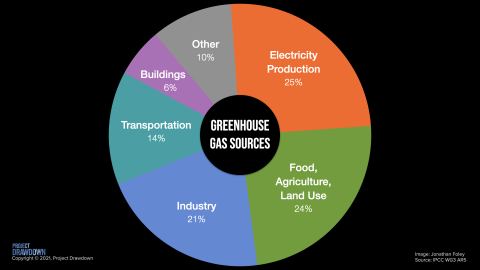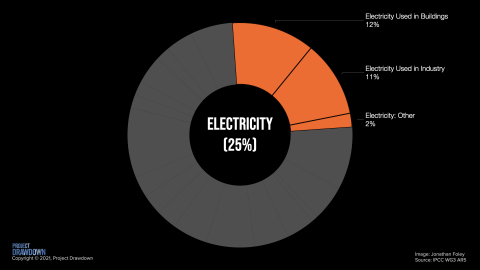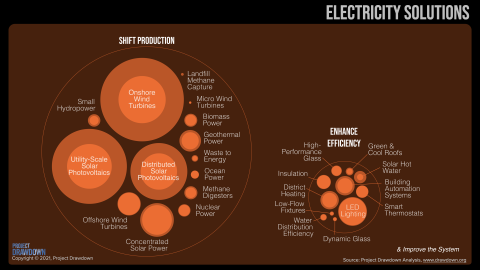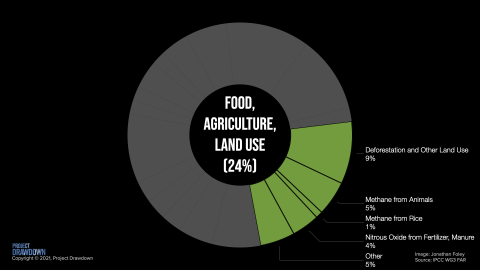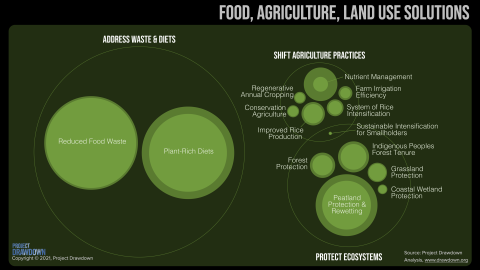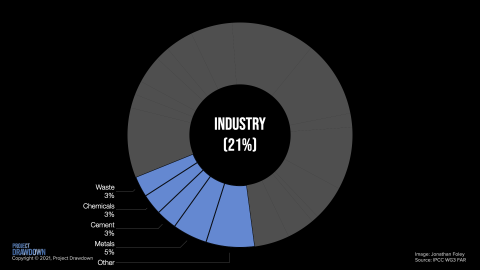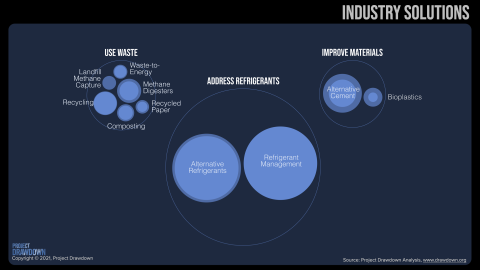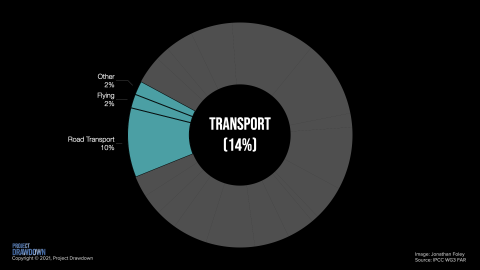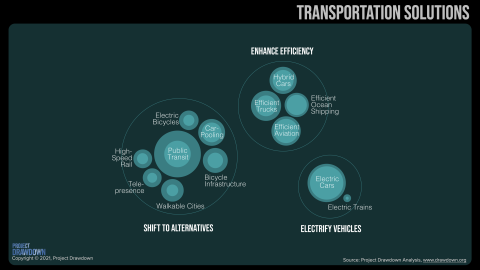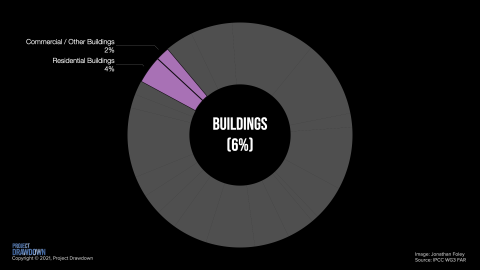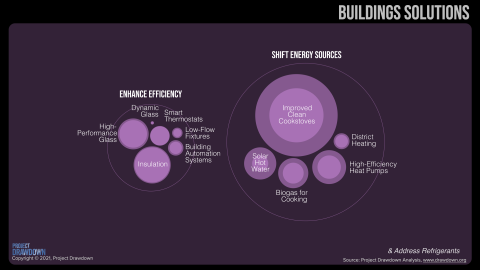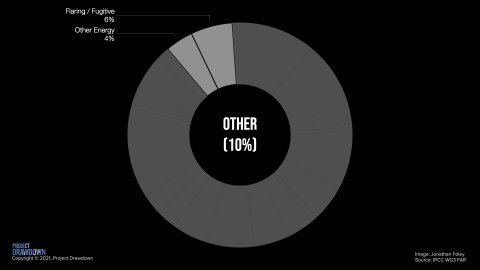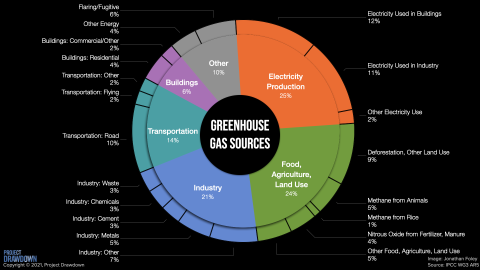Unit 3: Reducing Sources
How can we stop harmful emissions in their tracks? Discover fascinating, up-to-date methods for halting emissions before they reach the atmosphere. This unit walks through the five largest sources of greenhouse gases—electricity, food, industry, transportation, and buildings—bringing the path to a safer, low-carbon economy into sharper relief. Learn which sources make up the biggest slices of the global emissions pie.
Quick Links
Expert Conversations
Former Fellow for Transportation and Buildings, Project Drawdown
Allard advances solutions to the climate challenge by sharing his broad knowledge of transportation systems and their impact on our climate. His specialties include: sustainable transport, passenger intermodality, intercity transport, competitive issues in transportation, and cooperation among transportation systems. Beyond these topics, Allard has published peer-reviewed research and presented at international conferences on transport solutions to reduce climate change, and on mass transit, high-speed rail, car-driver support technologies, and systems design that encourages socially optimum behavior. Prior to joining Project Drawdown, Allard earned degrees from the Massachusetts Institute of Technology as well as the University of Lisbon in Portugal. Follow him on Twitter and LinkedIn.
Hear more about transportation and emissions sources in Unit 3, which covers the biggest slices of the global emissions pie.
Follow Allard—transportation analyst—on a deep dive into exciting real-world climate solutions. From electric vehicles and trains to innovations in aviation, Allard reimagines a smarter, faster transportation system around the world.
28:29Full Professor, Federal University of Viçosa
Costa has dedicated his career to geosciences, with a special emphasis on climatology. From the study of large-scale hydrology to micrometeorology, Costa is fascinated by the interactions between Earth’s air, land, and water. He earned his B.A. and M.S. from Brazil’s University Federal of Viçosa, and his doctorate in atmospheric and ocean sciences from the University of Wisconsin-Madison. Today, Costa is a full professor at his alma mater, the Federal University of Viçosa. Visit him online.
Hear more about the sources of greenhouse gas emissions in Unit 3, which brings the path to a safer, low-carbon economy into sharper relief.
Explore Brazil’s role in implementing climate solutions with Costa, expert climatologist at the Federal University of Viçosa. Join Costa for a wide-ranging discussion focused on tropical deforestation, ethanol production, regenerative agriculture, and more.
25:31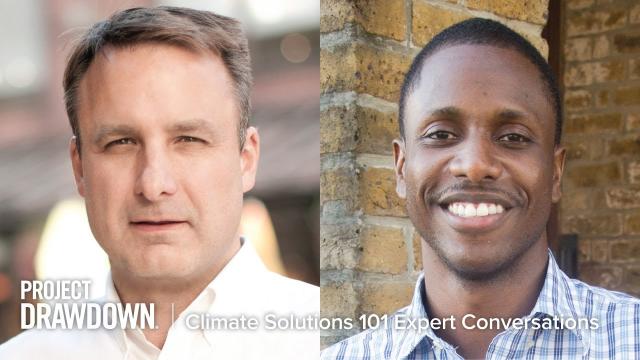
Former Fellow for Transportation and Buildings, Project Drawdown
Allard advances solutions to the climate challenge by sharing his broad knowledge of transportation systems and their impact on our climate. His specialties include: sustainable transport, passenger intermodality, intercity transport, competitive issues in transportation, and cooperation among transportation systems. Beyond these topics, Allard has published peer-reviewed research and presented at international conferences on transport solutions to reduce climate change, and on mass transit, high-speed rail, car-driver support technologies, and systems design that encourages socially optimum behavior. Prior to joining Project Drawdown, Allard earned degrees from the Massachusetts Institute of Technology as well as the University of Lisbon in Portugal. Follow him on Twitter and LinkedIn.
Hear more about transportation and emissions sources in Unit 3, which covers the biggest slices of the global emissions pie.
Follow Allard—transportation analyst—on a deep dive into exciting real-world climate solutions. From electric vehicles and trains to innovations in aviation, Allard reimagines a smarter, faster transportation system around the world.
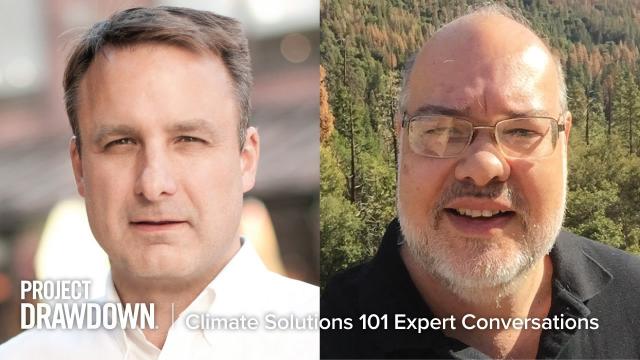
Full Professor, Federal University of Viçosa
Costa has dedicated his career to geosciences, with a special emphasis on climatology. From the study of large-scale hydrology to micrometeorology, Costa is fascinated by the interactions between Earth’s air, land, and water. He earned his B.A. and M.S. from Brazil’s University Federal of Viçosa, and his doctorate in atmospheric and ocean sciences from the University of Wisconsin-Madison. Today, Costa is a full professor at his alma mater, the Federal University of Viçosa. Visit him online.
Hear more about the sources of greenhouse gas emissions in Unit 3, which brings the path to a safer, low-carbon economy into sharper relief.
Explore Brazil’s role in implementing climate solutions with Costa, expert climatologist at the Federal University of Viçosa. Join Costa for a wide-ranging discussion focused on tropical deforestation, ethanol production, regenerative agriculture, and more.

